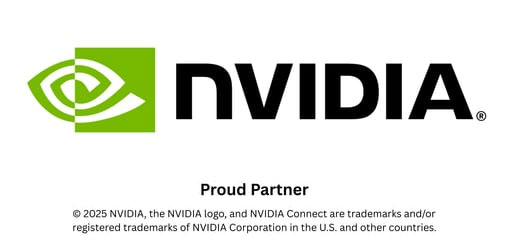Three months ago, Microsoft unveiled what may be the most striking advancement yet in AI‑powered medical diagnostics: The Microsoft AI Diagnostic Orchestrator (MAI‑DxO). The system combines multiple large language models (LLMs) in a “chain of debate” approach, reportedly diagnosing complex case studies with 85 % accuracy, compared to just 20 % from experienced clinicians under similar constraints. ft
What Makes MAI‑DxO Different?
At its core, MAI‑DxO is not just a highly capable LLM – it’s an orchestrator. Microsoft engineers created a panel of five AI agents, each adopting roles – hypothesis generation, test ordering, evidence gathering and so on. These roles interact in a structured debate, similar to a multidisciplinary medical team.
In one controlled test using 304 cases from the New England Journal of Medicine, MAI‑DxO achieved 85.5 % accuracy. That contrasts starkly with just ~20 % for 21 participating physicians, who, critically, lacked access to textbooks or consultations – limitations rarely present in real-world practice.

How "Chain of Debate" Enables Better Outcomes
This isn’t mere hype. The concept mirrors sophisticated techniques in AI research like Chain‑of‑Thought prompting and academic multi‑agent frameworks nature. In both, decomposing problems into intermediate steps fosters transparent and more accurate reasoning.
Recent multi‑agent frameworks, such as MAC (Multi‑Agent Conversation) and AI‑Hospital, have shown substantial diagnostic gains in controlled settings. In one study, MAC outperformed GPT‑3.5 and GPT‑4 across rare disease scenarios. wikipedia
Distributing reasoning across specialised agents promotes both accuracy and interpretability. MAI‑DxO’s “chain of debate” explicitly reflects that principle.
Accuracy ≠ Readiness - And That’s OK

- Clinical realism matters. MAI‑DxO’s physicians operated sans tools or peers – conditions far from real clinical life. Critics urge real‑world trials to include patient‑specific complexity: Evolving symptoms, imaging ambiguities and ethical trade‑offs. Without that, we cannot yet equate MAI‑DxO’s test‑case performance with real‑world reliability.
- Lack of peer review. As acknowledged by Microsoft, the MAI‑DxO results are yet to be peer‑reviewed. That means we lack clarity on its boundary conditions, false positives, embedded biases and edge‑case failures.
- Over‑reliance on one provider. Microsoft’s orchestrator uses multiple LLMs – from OpenAI, Google, Anthropic, Meta, xAI and DeepSeek – but still leans heavily on OpenAI’s o3 model. How outcomes vary with different model mixes remains to be proven.
Cost, Speed - And Opportunity
Economics matter. Microsoft pointed to up to 20 % lower diagnostic testing costs, even saving “hundreds of thousands of dollars” across the 304‑case sample wired. In my own line of work, cost‑efficient AI workflows are as critical as technical innovation, especially when scaling across national healthcare systems.
MAI‑DxO’s orchestrator also signalled cost-conscious behaviour – implicitly balancing accuracy against test expense. aimagazine
Where This Fits in the Medical AI Timeline
Microsoft isn’t alone. Google’s Med‑PaLM 2 surpassed human performance in USMLE question banks and is expanding into multimodal diagnosis (text + imaging) google. Harvard‑MHS’s Chief AI model achieved 94 % accuracy in cancer detection from tissue slides. ft
However, MAI‑DxO is unique in its focus on the diagnostic reasoning process, not just end‑point accuracy. Its multi‑agent orchestration reflects a distinct shift from black‑box predictions towards explainable, collaborative AI – a cornerstone for executive and regulatory trust.
Risks & Governance
We must remember LLMs still hallucinate. MIT researchers have shown that typos or emotional language in prompts can skew responses dangerously. In healthcare, the margin for error is minimal. Orchestrator or not, rigorous governance, auditing and human‑in‑the‑loop mechanisms will be essential.
Ethical oversight needs to catch up. AI must be deployed responsibly, with transparency, accountability and clinician consent baked in.
Final Thought
MAI‑DxO isn’t sci‑fi, it’s the next logical step in AI maturation. By chaining multiple LLMs into a controlled “medical debate”, it edges us closer to transparent, collaborative, cost‑effective AI in medicine. But we must tread carefully. The next phase isn’t piloting accuracy benchmarks: It’s real‑world deployment backed by rigorous clinical trials, governance and integration.
For board‑level readers: Treat this as both a warning and an opportunity. AI alone won’t fix healthcare’s systemic challenges, but orchestrated AI just might. The difference lies in vetting, integration and accountability.
At North Atlantic, we’re watching these developments closely as we shape the next generation of our solutions.
Victor A. Lausas
Chief Executive Officer
Subscribe to North Atlantic’s email newsletter and get your free copy of my eBook,
Artificial Intelligence Made Unlocked. 👉 https://www.northatlantic.fi/contact/
Discover Europe’s best free AI education platform, NORAI Connect, start learning AI or level up your skills with free AI courses and future-proof your AI knowledge. 👉 https://www.norai.fi/






